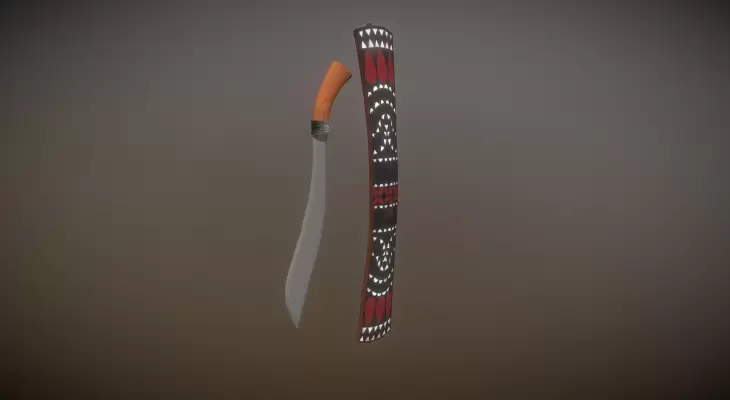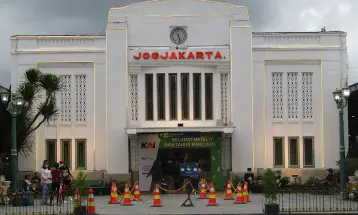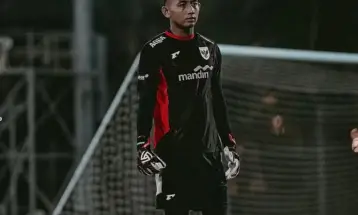Parang Salawaku, Maluku's traditional weapon

Holiday Ayo - Indonesia is rich in arts and culture, including traditional weapons. As in Maluku, there are various traditional weapons, one of which is the ParangSalawaku.
Parang Salawaku is a pair of traditional weapons consisting of a Parang (a long sword-like knife) and a Salawaku (shield). For the people of Maluku, this weapon is a symbol of people's independence.
In the past, this weapon was used for war. The machete is used as a weapon to attack the opponent. Meanwhile, Salawaku is used as a shield that serves to withstand the opponent's attack.
The hero from Maluku, Kapitan Pattimura, also used the Parang Salawaku when fighting against Dutch colonial rule. In addition to fighting, people used to use the machete as a tool to hunt animals in the forest.
The beauty of this traditional weapon can be seen in the Cakalele dance. A traditional dance that symbolizes the strength of Maluku men. The dancer holds a Parang in the right hand which symbolizes courage, while Salawaku in the left hand symbolizes the struggle for justice.
Now, the Parang Salawaku is not only a symbol of the people of Maluku, but also a symbol of Ambon City and creative products as a typical Maluku souvenir. These typical Maluku handicrafts are made by local iron craftsmen, the majority of whom are known to come from Kakara B Island, North Halmahera.
Parangs are made of forged iron and vary in size. The size can be adjusted according to the owner's height so that the sizes vary greatly. The majority are 90-100 cm in size. The handle is made of iron wood or gapusa wood. Meanwhile, Salawaku is made of hard wood decorated with sea shells.
That means Salawaku is a patterned shield. But not just any motif that can be used, usually only a motif that symbolizes courage. Because this symbol can make users have the same courage when fighting against enemies.
For foreign and domestic tourists who are interested in having a souvenir of this traditional Maluku weapon, you can buy it at the souvenir center. Some are even made from a series of original cloves at the Santhos Shop (a typical Maluku souvenir center) on Anthony Rhebok Street, Honipopu, Sirimau, Ambon at a price of IDR 250,000.








Leave a comment